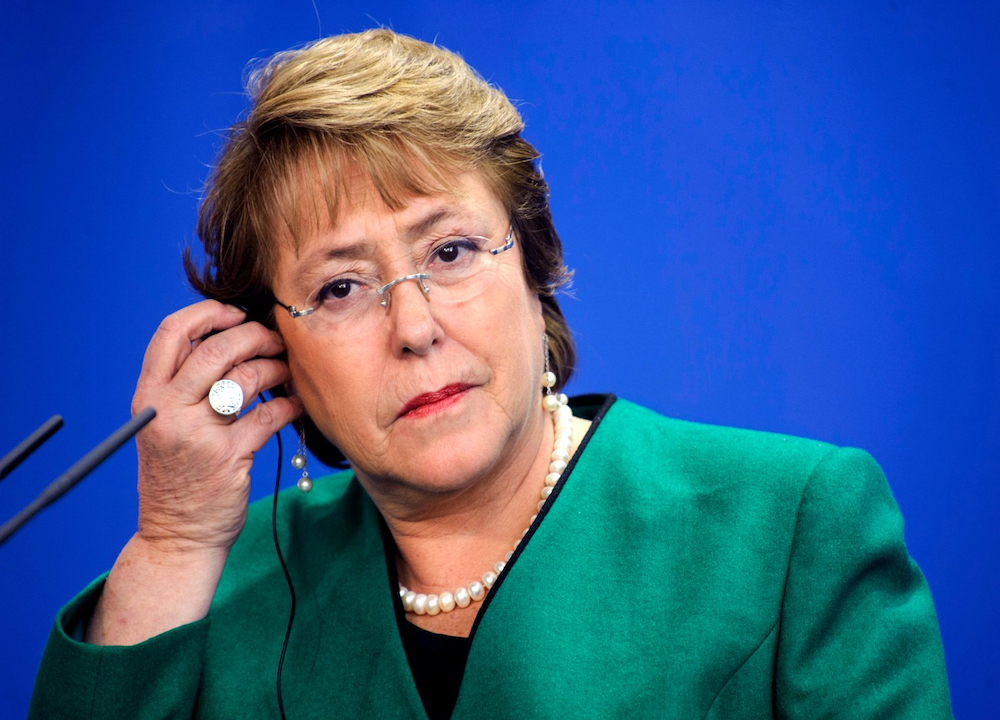Bachelet calls for “impartial, independent” investigation of extrajudicial killings, enforced disappearances
United Nations high commissioner for human rights says that she raised “deep concern” with the government over “serious allegations”.

Bangladesh government should set up “an impartial, independent and transparent investigation” into allegations of enforced disappearances, extrajudicial killing, and torture, Michelle Bachelet, the United Nations high commissioner for human rights has said in her statement at the end of her four day trip to the country, “I raised my deep concern about these serious allegations with government ministers.”
Bachelet also called on ministers to establish a “more specialised mechanism that works closely with victims, families and civil society to investigate allegations of enforced disappearances and extrajudicial killings” given the “long-standing frustrations at the lack of progress in investigations and other obstacles to justice.”
“There are continued, alarming allegations of both short-term and long-term enforced disappearances, and concerns about the lack of due process and judicial safeguards.”
She added that her office was ready to provide advice on how such a body could be designed in line with international standards.
Bangladesh’s foreign minister had earlier told journalists that the UN high commissioner had not raised issues about extrajudicial killings and enforced disappearances with the government.
Bachelet also linked her concerns about these issues with Bangladesh’s role in UN peacekeeping.
“As the biggest contributor of uniformed personnel to UN peacekeeping missions, Bangladesh should ensure it has a robust system in place to ensure the careful human rights screening of security personnel.” she said. “Inviting the UN Working Group on Enforced [and Involuntary] Disappearances to visit Bangladesh would also show a commitment to decisively address this issue.”
In relation to freedom of speech, Bachelet said that successive UN human rights reports have documented “a narrowing of civic space, increased surveillance, intimidation and reprisals often leading to self-censorship. Laws and policies over-regulating NGOs and broadly restricting the freedom of expression make it difficult — and sometimes risky — for them to function effectively.”
In relation to the Digital Security Act, she said that her office had “submitted our recommendations for repeal and revision of certain provisions of the act, with a view to ensuring their compliance with international human rights laws and standards and preventing arbitrary application or misuse,” and was now looking forward to the government’s feedback.
Bachelet noted that the government should welcome critical voices. “It was key,” she said, “that people from various sectors of society are heard and that they feel heard. Civil society members are important resources that governments need to tap into. Critical voices can help to identify the problems, to acknowledge them, to dive deep into the causes and discuss solutions.”
The high commissioner for human rights also pointed out that Bangladesh has made strides in socio-economic development, poverty eradication, access to education and health, women’s and children’s mortality, access to food, water and sanitation and has been a leader in international fora on key human rights issues such as migration and climate change.
She also welcomed the government’s “impressive effort” in hosting the Rohingya population who had fled atrocities in Myanmar, “the importance of Bangladesh’s humanitarian contribution — and its historical significance — cannot be overstated.”
Bachelet, however, called on the government to expand “education and livelihood opportunities” to the children in the camps and warned that repatriation to Myanmar should only take place when “the conditions were ripe”, and “conducted in a voluntary and dignified manner.”●